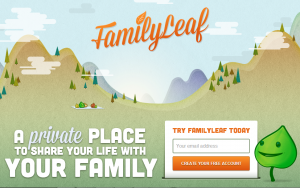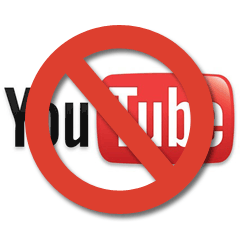Several years ago you could hear the question “Are you on Facebook?”. Today it probably is “How can I find you on Facebook?”. Do you have an account there or not is not a question anymore. Facebook nowadays is the “must have” for everyone. It’s the biggest contact book with 955 million users (June 2012) throughout the word and this amount continues to increase. Such a fast growth changed the character of this social platform, turning it from the small network for friends into the public library or inquiry office for long-lost relatives, random acquaintance or even strangers surfing around.
Why do we have an account on Facebook? “Sharing, giving and receiving”, isn’t it? And “sharing” – the major option of Facebook – is so easy. Just push the “post” button or tag a face. With such an amount of “friends” one needs to be careful of what to share. Of course, there are limitations of access, but it seems really time consuming to monitor your activity all day long. That is why many users of Facebook are decreasing their activity and switching to another way of sharing.
 This new appeared issue created the background for so-called micro-social networks. These are services, which provide the possibility to share the information among people in small circle. The sharing therefore is becoming more intimate by nature. For now there are several platforms of such a kind. Pair, Path, FamilyLeaf, Kibits and newcomer Kidfolio are some of them. They are much more smaller then Facebook, Vkontakte (huge social network for Russian-speaking users around the world), Odnoklassniki etc. Path, for example, has a limitation of 150 friends. FamilyLeaf cover just close relatives and Pair is just for 2 users. Kidfolio is a service for parents to share the photos of kids, which can be organized in scrapbook timelines in chronological order.
This new appeared issue created the background for so-called micro-social networks. These are services, which provide the possibility to share the information among people in small circle. The sharing therefore is becoming more intimate by nature. For now there are several platforms of such a kind. Pair, Path, FamilyLeaf, Kibits and newcomer Kidfolio are some of them. They are much more smaller then Facebook, Vkontakte (huge social network for Russian-speaking users around the world), Odnoklassniki etc. Path, for example, has a limitation of 150 friends. FamilyLeaf cover just close relatives and Pair is just for 2 users. Kidfolio is a service for parents to share the photos of kids, which can be organized in scrapbook timelines in chronological order.
What are advantages of these small social networks? Of course, it’s simplicity. There are no complicated privacy settings, the interface is understandable and quite easy to use. What else? To my mind, using such an app, one won’t be overloaded with any kind of unnecessary and unrelated information from around. And the major advantage: you will never share the private things with wrong people.
I think these small social networks can become an attractive option for people who are sick of easy sharing and want to protect their personal space in the world where nothing is hidden anymore. Will these startups become successful? The time will show. It can be just a new toy, but who knows? Maybe the post-Facebook era is starting right now…
 nal search is not something unbelievably new and rare. One of the earliest projects is called Cue (former name Greplin) – the startup even got a $4 million investment from Sequoia Capital, but that didn’t make the company’s service do the job in the best possible way. Because of information overload in the search results the project was transformed into some kind of personal online secretary that divides all your data by days.
nal search is not something unbelievably new and rare. One of the earliest projects is called Cue (former name Greplin) – the startup even got a $4 million investment from Sequoia Capital, but that didn’t make the company’s service do the job in the best possible way. Because of information overload in the search results the project was transformed into some kind of personal online secretary that divides all your data by days. Hashtag #HandsOffYouTube (#РукиПрочьОтЮтуба) exploded Russian sector of twitter with the breaking news concerning the biggest video-sharing website YouTube. According to
Hashtag #HandsOffYouTube (#РукиПрочьОтЮтуба) exploded Russian sector of twitter with the breaking news concerning the biggest video-sharing website YouTube. According to